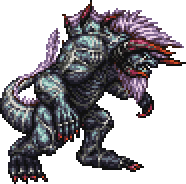Sure, but I was saying that we now know the sea is not chaotic but rather like clockwork with tides and currents and the like. We understand WAY MORE about the seas and oceans than the ancient Mesopotamian cultures did. (At least I -hope- that's the case...)It's probably not best to project our sentiments towards oceans onto ancient cultures.
That putting "Chaos" on a sea-deity might place their conception of chaos in the sea, and that their definition of chaos might have been different from ours, much as it's been noted that chaos was 'void' or 'emptiness' before creation from several mythologies as opposed to our modern interpretation of it.
It's definitely true that "craftsman" "maker" or "creator" or even "birther" could've been put in place of mummu and been as accurate as the original definition of demiurge. And has been in various other translations.I do agree that the use of "demiurge" risks bringing in accumulated connotations to the word, which you point out here.
Those can-of-worms issues aside, Lambert here is translating "mummu" from Tablet I, line 4: "mummu tiāmtu muʾallidat gimrīšun." Looking through my copy of the Chicago Akkadian Dictionary, the word "mummu" commonly means "craftsman, creator," among a few other things. The term "bit mummu" is often used for a workshop or even a scribal school. The lexical entry in CAD also notes that "mummu" is also an epithet of Ea and Marduk* as well as even Ištar. So it is a comparable term to the Greek word "demiurge."
However, Lambert (thankfully) does not provide the only translation of the Enuma Eliš and there are other translations that you can find for "mummu tiāmtu" that you find out there, including "matrix/creatrix." For example, Kämmerer and Metzler, in a German translation after Lambert's, go with "Die lebenswirkende Kraft Tiamat" (trans. "the life-giving force Tiamat").
Of course, there may even be a pun at work here with mu-um-mu, as "mu" is the Akkadian word for "water" and "ummu" is an Akkadian word for "mother." However, I am not so well versed in Akkadian that I can speak to the merits of whether such a pun is at play here, particularly as the actual cuneiform used could discredit this. I will save that question for an Assyriologist. I also don't want to spend too much of my day going down the rabbit hole of this broader issue of issues and scholarly debates in translating "mummu."
* For example, in the title and epithets given to Marduk in the final tablet, he is called "mummu bān šamê (u) erṣeti" or "MUMMU, creator of heaven and the underworld."
The point I was making is that the connotations of demiurge exist with the antagonistic position and all. And whether it was intentional or not, Lambert put that out there. Or in there?
The point was: Even in trying to communicate the same idea we use imperfect language and often imperfect understanding across different languages.
Here's another example. The Zulu refer to their groups as iziswe. English speakers in the 1800s translated iziswe as "Tribe" where it actually means "People" or "Nation". And then applied all sorts of assumptions to the term "Tribe" which contribute to the myth of African Timelessness. That African people are primitive in nature because Tribes are early bands in the 'civilization timeline' Western culture often ascribes to.
And that imperfect understanding, whether in Chaos or Dragon or Demiurge or Tribe or nation... leads to ever widening loss of understanding.




